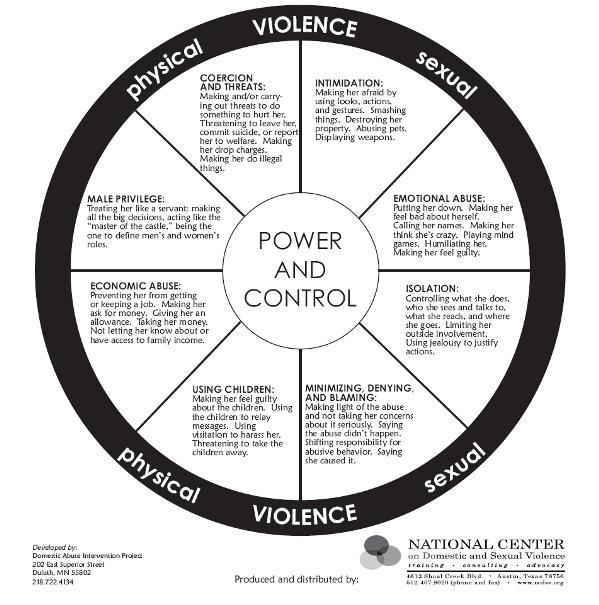Although there is no blueprint of an abuser, there are similar characteristics that comprise abusive personalities. We can use these as warning signs, or “red flags” when becoming involved in new relationships.
1. Controlling Behavior
Controlling behavior is often disguised or excused as concern for physical, emotional, or mental safety. A potential abuser may be angry or upset if he or she doesn’t know where you are at all times of the day. Concern for loved ones is normal- controlling their every move is not.
2. Jealousy
Jealousy can be excused as a sign of love. A potential abuser may question everything you do and then accuse you of flirting with someone else. He or she may become jealous of the time you spend with friends and family and refuse to let you see them alone. Jealousy is not romantic- it is a sign of insecurity and possessiveness.
3. Quick Involvement
Abusers may seem desperate and will try to pressure you into a commitment or into a sexual relationship before you are really ready. He or she may try to make you feel guilty if you don’t commit.
4. Unrealistic Expectations
A potential abuser may expect you to be the perfect wife or husband, mother or father, lover, or friend. He or she may expect you to provide everything (spiritually, emotionally, physically, etc…) and then get mad if you don’t meet their impossible expectations.
5. Blame-shifting
Abusive personalities will very rarely accept responsibility for any negative situation or problem. An abuser will not like to admit he or she is wrong and will usually try to blame others for their mistakes. An abuser may make negative statements like ‘I wouldn’t do this if you wouldn’t make me so mad in the first place.’
6. Hypersensitivity
Most abusers may take completely unrelated comments as personal attacks. They may overreact and consider minor setbacks as giant personal injustices. They may not be able to take criticism without feeling attacked.
7. “Playful” Use of Force in Sex
He or she may try to pressure you into acting out forceful or violent acts during sex, with little regard to your feelings. Starting sex while you are asleep, demanding sex when you are tired or sick, and getting angry if you say ‘no’ are all signs that he or she may become sexually abusive or violent.
8. Verbal Abuse
An abuser may say things that are hurtful and cruel and especially degrading. An abuser will try to make you feel inferior or useless and may often do this in front of people that you care about- friends and family.
9. Drink or Substance Abuse
Some abusers will blame all of their wrong actions on alcohol and refuse to take responsibility. Alcohol and drugs don’t cause violence, but an abuser may use alcohol or drugs to use as an excuse for perpetrating violence.
10. More Obvious Signs
The more obvious signs are violent threats and outbursts, breaking and throwing objects, or a history of violence. These are all serious signs that you may be in a relationship with a potentially violent individual.


